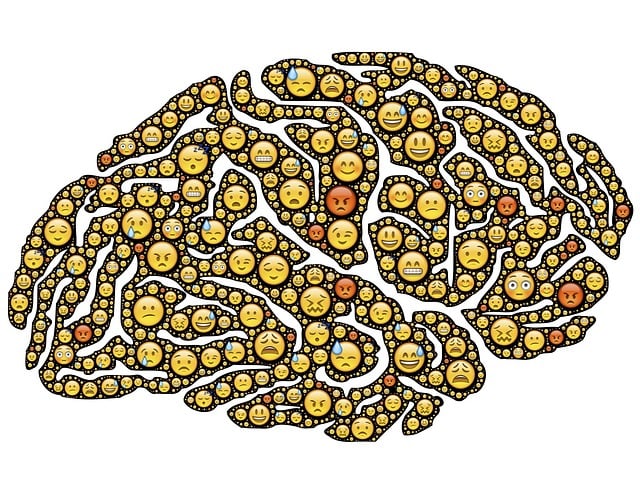Therapy for Grief Counseling: A Holistic Approach
RFM (Recency, Frequency, Monetary Value) analysis is a powerful tool in therapy for grief counseling. By understanding customer interaction patterns, counselors can predict client behavior and provide targeted support, such as mindfulness meditation, to at-risk individuals post-loss. Resilience building exercises like social skills training strengthen self-awareness and emotional regulation, empowering clients to navigate grief with hope. Integrating RFM principles, recovery, resilience, and mourning frameworks into counseling facilitates emotion exploration in safe spaces, enhances coping mechanisms, and addresses internal conflicts, offering personalized support tailored to each client's unique needs. This innovative approach, proven effective in real-world settings, goes beyond traditional therapy for grief counseling, fostering mental fortitude and preventing depression among at-risk individuals.
“Unraveling the power of RFM (Recency, Frequency, Monetary Value) as a framework, this article explores its transformative potential in therapy for grief counseling. We delve into how understanding client engagement and behavior can predict their resilience. By integrating resilience-building exercises tailored to individual needs, therapists enhance grief support. This comprehensive guide covers the theory behind RFM, practical strategies for its application, and compelling case studies showcasing real-world improvements in managing grief.”
- Understanding RFM: A Framework for Measuring Engagement and Predicting Behavior
- The Role of Resilience Building Exercises in Grief Counseling
- Effective Strategies for Incorporating RFM into Grief Therapy
- Case Studies: Real-World Applications of RFM in Enhancing Grief Support
Understanding RFM: A Framework for Measuring Engagement and Predicting Behavior

Understanding RFM (Recency, Frequency, Monetary Value) is a powerful framework that goes beyond simple customer engagement metrics. By analyzing how recently a customer interacted, how frequently they engage with your services, and the monetary value of their purchases, businesses can predict behavior and tailor their strategies accordingly. In the context of therapy for grief counseling, this model becomes especially valuable. It allows professionals to identify clients who may be at higher risk of disengaging or struggling post-loss, enabling them to offer targeted support and trauma support services.
For instance, a client who frequently attends sessions but has not made a significant financial commitment might benefit from additional mindfulness meditation practices aimed at reinforcing coping mechanisms. Conversely, someone engaging less often but with substantial financial investment could require different interventions, such as exploring mind over matter principles to enhance their resilience. This nuanced understanding fosters more effective grief counseling by addressing individual needs and preferences.
The Role of Resilience Building Exercises in Grief Counseling

Resilience building exercises play a pivotal role in grief counseling, offering therapeutic techniques that help individuals navigate and cope with profound emotional loss. In the context of therapy for grief counseling, these exercises are designed to strengthen a person’s ability to adapt and bounce back from difficult experiences, especially during the grieving process. By incorporating activities that promote self-awareness, coping strategies, and emotional regulation, counselors can effectively support clients in managing their grief and enhancing their overall well-being.
One such exercise is mindfulness meditation, which encourages individuals to focus on the present moment, thereby reducing the intensity of mourning. Social skills training is another valuable tool, fostering connections and supporting individuals in building a supportive network—a crucial aspect of stress management during times of bereavement. These exercises not only help in processing grief but also equip individuals with the means to cultivate resilience, enabling them to find strength and hope as they navigate their journey through mourning.
Effective Strategies for Incorporating RFM into Grief Therapy

Incorporating RFM (Recovery, Resilience, and Mourning) into therapy for grief counseling offers a comprehensive approach to support individuals in their emotional healing processes. This model recognizes that each person’s journey through grief is unique and requires tailored strategies. By combining established therapeutic methods with RFM principles, counselors can create a powerful framework. For instance, encouraging clients to explore and express their emotions in a safe space facilitates the natural mourning process, helping them process loss and find meaning.
Additionally, integrating conflict resolution techniques within the context of grief therapy allows individuals to address potential internalized conflicts or external challenges that may arise during bereavement. This aspect promotes healthy coping mechanisms and enhances resilience, enabling clients to manage anxiety relief effectively. The RFM model provides a structured yet flexible framework, ensuring that the emotional healing processes are tailored to meet each individual’s unique needs in their journey through grief counseling.
Case Studies: Real-World Applications of RFM in Enhancing Grief Support

In real-world settings, RFM (Resilience and Grief Management) approaches have proven to be invaluable in enhancing grief support services. Case studies demonstrate that integrating these strategies into therapy for grief counseling can significantly improve outcomes for individuals navigating loss. For instance, a mental health education program designed with an RFM lens has shown promise in helping folks cope with bereavement by fostering resilience and promoting healthy coping mechanisms. This innovative approach goes beyond traditional grief counseling by addressing the root causes of vulnerability to trauma support services, thereby preventing depression in at-risk individuals.
By incorporating RFM into their practice, therapists can offer more holistic care, empowering clients to build mental fortitude and effectively manage grief reactions. This shift in focus from mere symptomatology to underlying resilience-building has led to positive changes in the lives of many. Such case studies underscore the potential of RFM in transforming grief support, making it more accessible and effective for those in need of therapy for grief counseling.
Resilience building exercises, integrated with the RFM framework, offer a powerful approach to therapy for grief counseling. By understanding individual engagement and predicting behavioral responses, professionals can tailor interventions effectively. The case studies presented demonstrate the real-world impact of this method in enhancing grief support, providing hope and healing for those navigating loss. Incorporating RFM into practice not only strengthens the therapeutic process but also empowers individuals to build resilience and cope with life’s challenges.












